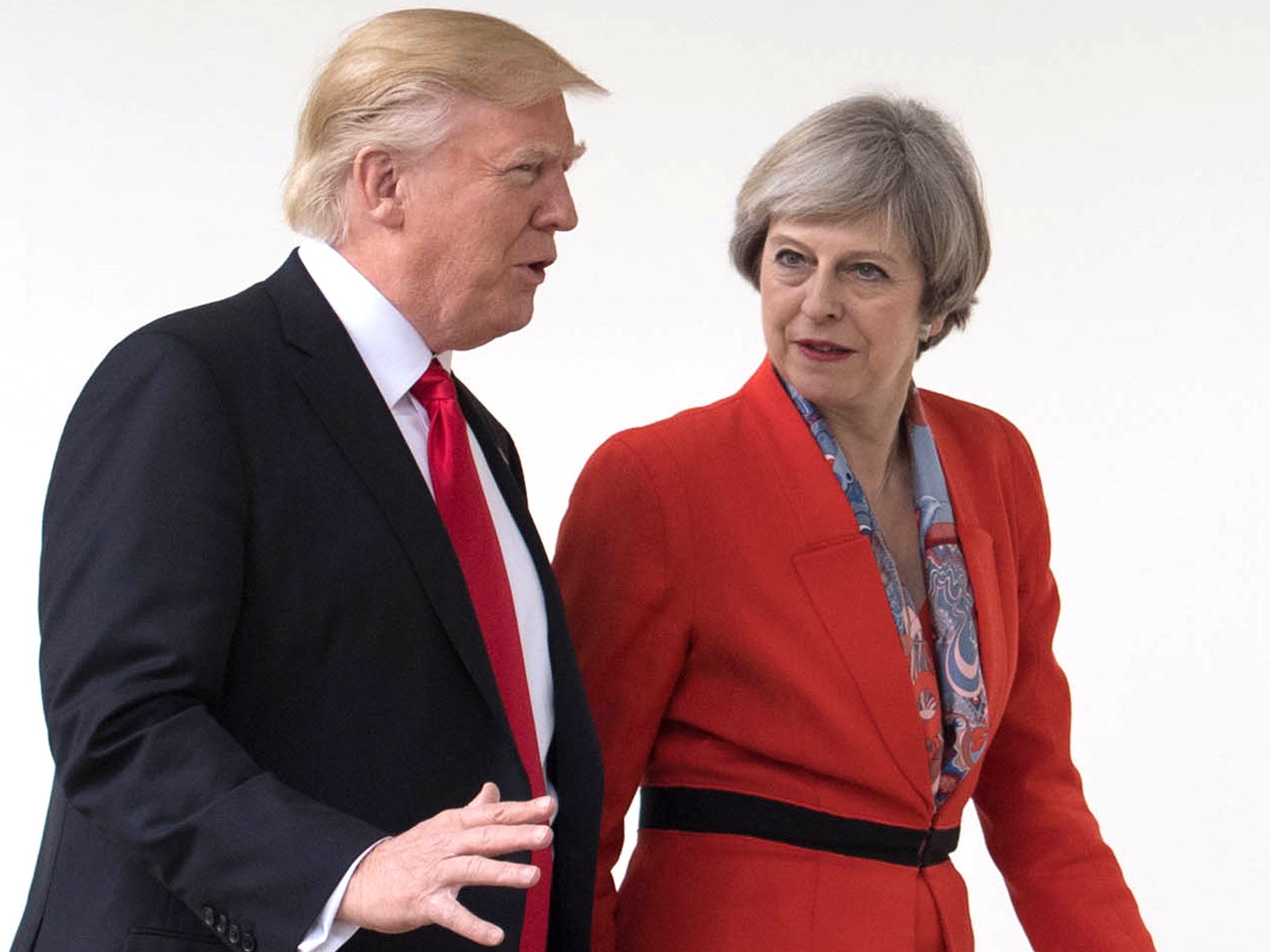Theresa May and Donald Trump discuss Iran nuclear deal on the phone
'We and our European partners remain firmly committed to ensuring the deal is upheld as the best way of preventing Iran from developing a nuclear weapon'

Prime Minister Theresa May and US president Donald Trump have discussed the impact of America pulling out of the Iran nuclear deal, Downing Street said.
The telephone talks covered a range of international issues, a spokesman for Ms May said,
"The Prime Minister reiterated the Government's position on the Iran nuclear deal, noting that we and our European partners remain firmly committed to ensuring the deal is upheld as the best way of preventing Iran from developing a nuclear weapon," they said. "The Prime Minister raised the potential impact of US sanctions on those firms which are currently conducting business in Iran.
"They agreed for talks to take place between our teams."
They added: "The Prime Minister began by congratulating the President on the safe return of three US citizens who had been held in prison in North Korea. The two leaders looked forward to the summit which will take place between President Trump and Kim Jong-un in Singapore. The PM said the UK would continue to work with the US to keep up the pressure on North Korea to denuclearise.
"The Prime Minister and the President condemned the Iranian rocket attacks against Israeli forces earlier this week and strongly supported Israel's right to defend itself against Iranian aggression. They agreed on the need for calm on all sides and on the importance of tackling Iran's destabilising activity in the region.
"The Prime Minister and the President looked forward to the President's visit to the UK in July."
Earlier this week Mr Trump ended the US’s commitment to the Joint Comprehensive Plan of Action negotiated between Iran, the EU, US, Russia, China, France, Britain, and Germany, which was signed by his predecessor Barack Obama in 2015.
It set limits to Iran's stockpile of enriched uranium, which can be used to make reactor fuel but also nuclear weapons, until 2031.
It also limits the the number of centrifuges that can installed to enrich uranium until 2026. Iran also agreed to modify a heavy-water facility so it could not produce plutonium suitable for a bomb.
In return the country was allowed to trade with other countries.
As he pulled the US out of the deal, Mr Trump claimed it was “decaying and rotten”, adding that it was “an embarrassment” to him “as a citizen”.
In the US the deal is politically-charged because it is seen as a key legacy as Barack Obama. It is also opposed by Israel, a close US ally in the region.
Press Association contributed to this report.
Join our commenting forum
Join thought-provoking conversations, follow other Independent readers and see their replies
Comments
Bookmark popover
Removed from bookmarks